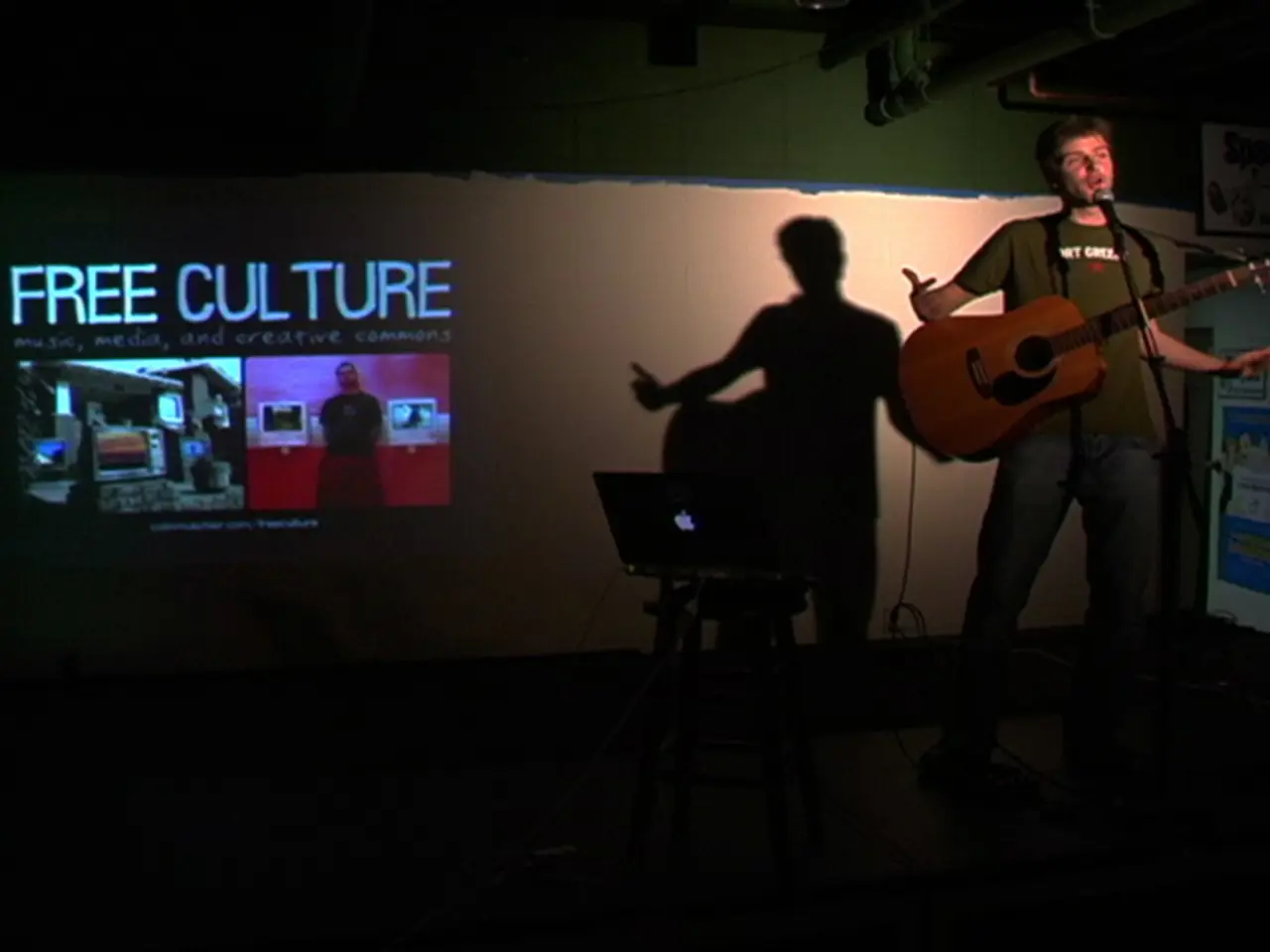Adjusting perspectives on cultural consumption habits during lockdowns - insights from wave 9 data analysis
In a recent study, the Policy Brief titled "Consumers' Cultural Consumption Habits During Lockdown" provides insights into how people engaged with cultural products and services during the COVID-19 lockdown period. This study, commissioned by the Policy Exchange Centre (PEC) and the Intellectual Property Office (IPO), and conducted by Audience Net, is part of a series of waves offering ongoing tracking of these consumption habits.
The wave 9 data, in particular, sheds light on the shifts in consumer behavior for cultural consumption during the lockdown. One of the key findings is the increased reliance on digital and on-demand culture due to pandemic restrictions and the closure of traditional cultural venues. The survey tracked trends such as increased engagement with streaming services, games, and digital cultural experiences.
Moreover, the study captures evolving consumption patterns for virtual reality and other immersive technologies as part of the broader cultural industry's adaptations. The report emphasizes cross-cutting insights across different cultural sectors, indicating shifts to at-home entertainment and new technology adoption in cultural consumption.
Unfortunately, radio or podcasts were not included in the study as there were no questions about these content categories in the OCI Tracker Survey that it was based on. However, within some sub-sectors, such as publishing, audiobooks have been the most popular device for reading, above books, e-books, and magazines.
The study also found that people in local lockdown areas watched more television and films than those in less restricted areas. Interestingly, the relaxing of lockdown measures didn't have a noticeable effect on people's reported wellbeing.
The report was conducted over six weeks from April to June, when the UK was in a full national lockdown, and three further waves in July, August, and September during which some parts of the UK were in local lockdowns at various points. The latest release of data from this nine-week study provides a comprehensive analysis of audiences and workforce in the arts, culture, and heritage sectors, as well as policy briefs such as "Audiences and Workforce in Arts, Culture, and Heritage."
The PEC, an organization providing independent research and policy recommendations for the UK's creative industries, has also published policy briefs like "Creative Industries Innovation in Seaside Resorts and Country Towns," "Transitioning to Sustainable Production across the UK Theatre Sector," "Authors' Earnings in the UK," and "Insights from the Northern Creative Corridor Workshops Sprint." These briefs offer recommendations and analysis on various aspects of the creative industries, including international trade, sustainability, and audience engagement.
The full report and a blog from Hasan Bakhshi, Director of the PEC, can be found online for those interested in more detailed quantitative and thematic results. The study builds on research in the PEC's area of work in Intellectual Property, Business Models, Access to Finance, and Content Regulation.
- The study's findings reveal a significant increase in the use of digital and on-demand culture as people adapted to pandemic restrictions and venue closures.
- The wave 9 data highlights a trend towards increased engagement with streaming services, digital games, and experiences in cultural consumption.
- The report underscores the evolution of consumption patterns for virtual reality and other immersive technologies, as part of the broader cultural industry's adaptations.
- Unfortunately, radio or podcasts were not included in the study, due to a lack of questions about these content categories in the OCI Tracker Survey.
- However, within certain sub-sectors, such as publishing, audiobooks have been the most popular device for reading, surpassing books, e-books, and magazines.
- People in local lockdown areas were found to watch more television and films than those in less restricted areas.
- Interestingly, the relaxing of lockdown measures did not seem to have a significant impact on people's reported wellbeing.
- The full study covers a six-week period (April to June) when the UK was in a national lockdown, followed by three additional weeks during local lockdowns in various parts of the UK.
- The research provides a thorough analysis of audiences and workforce in the arts, culture, and heritage sectors, as well as insights into policy matters such as "Audiences and Workforce in Arts, Culture, and Heritage".
- The Policy Exchange Centre (PEC) has also published policy briefs on creative industries innovation in seaside resorts and country towns, sustainable production across UK theatres, authors' earnings in the UK, and insights from the Northern Creative Corridor Workshops Sprint.
- These briefs offer valuable recommendations and analysis on various topics within the creative industries, including international trade, sustainability, and audience engagement.
- The findings of this study build upon research in the PEC's areas of work in Intellectual Property, Business Models, Access to Finance, and Content Regulation.
- The report's data suggests potential opportunities for industries like fashion-and-beauty, food-and-drink, home-and-garden, relationships, pets, travel, cars, education-and-self-development, personal-growth, shopping, and career-development to adapt and cater to the changing consumer habits.
- For those seeking more detailed quantitative and thematic results, the full report and a blog from Hasan Bakhshi, Director of the PEC, can be found online.






